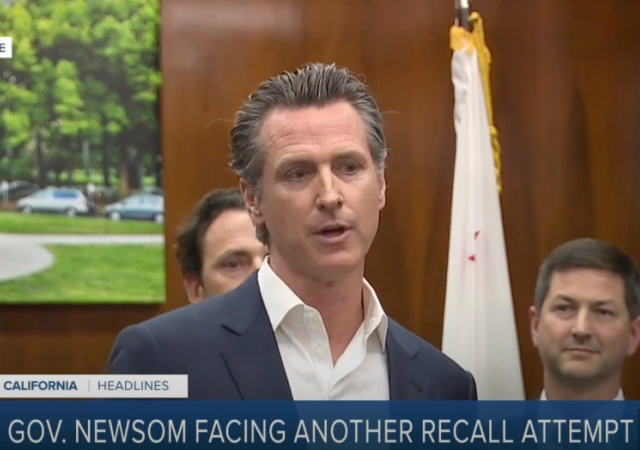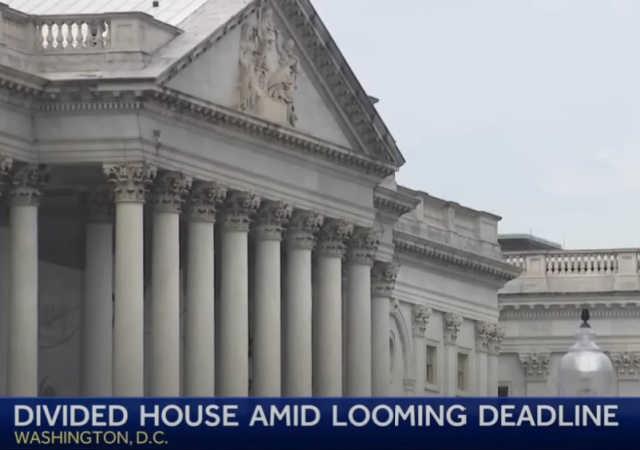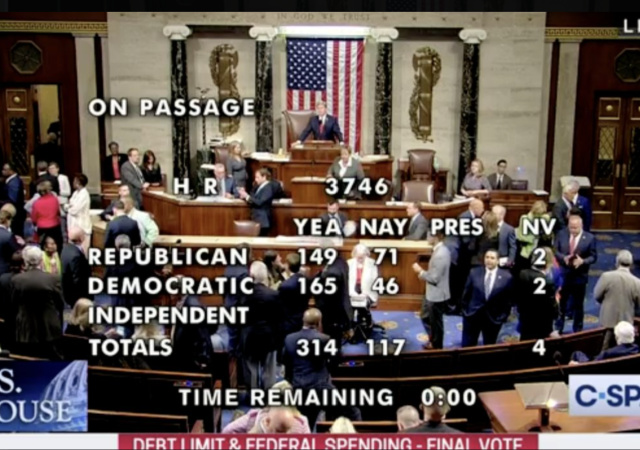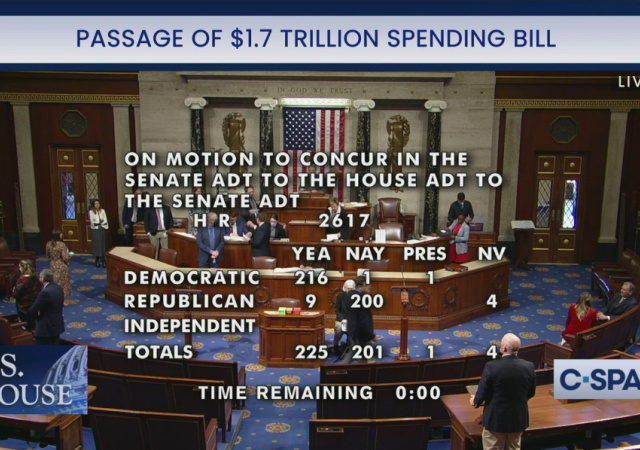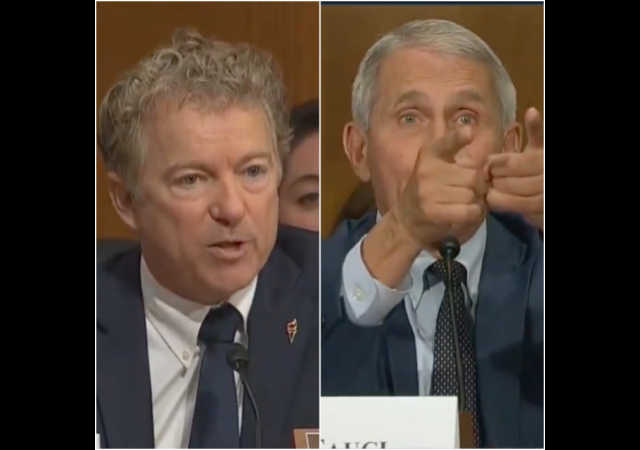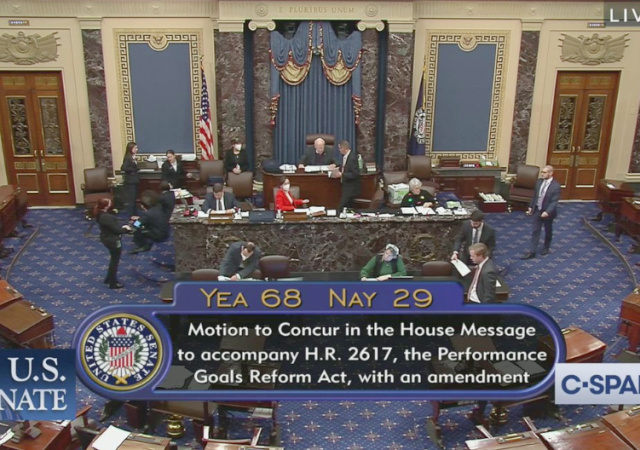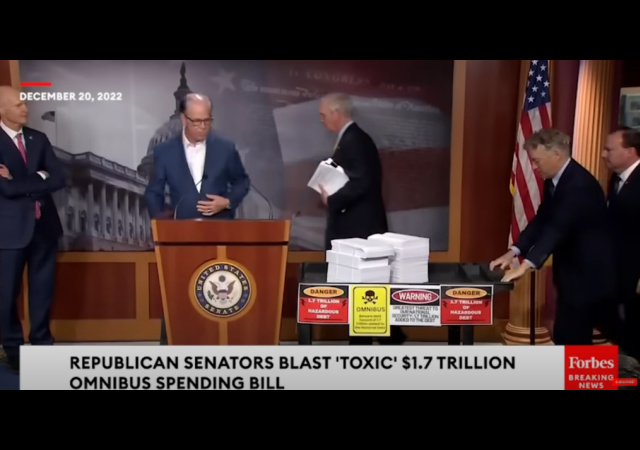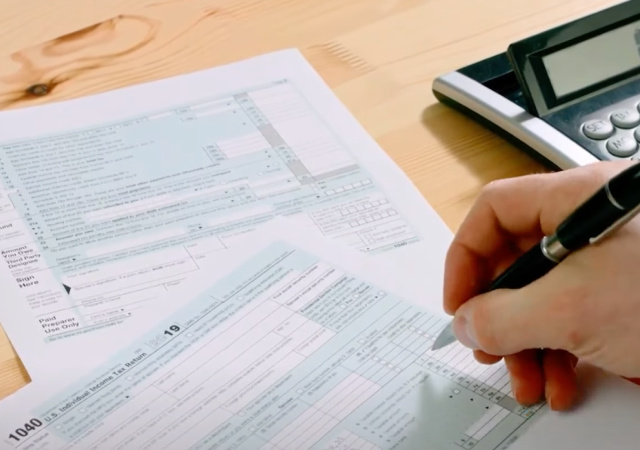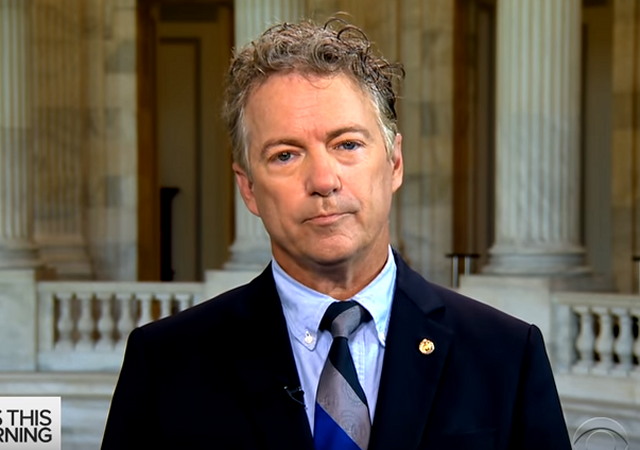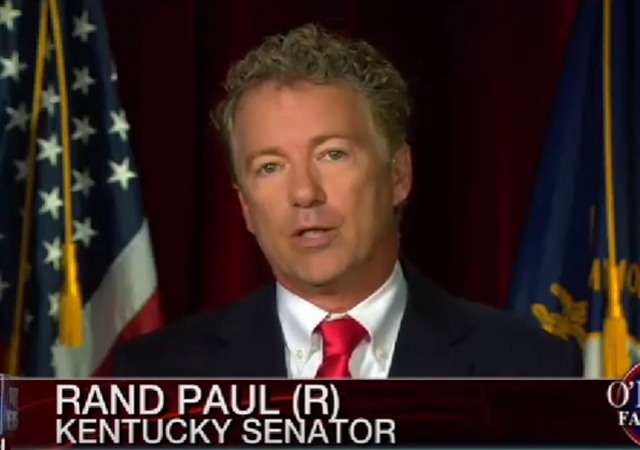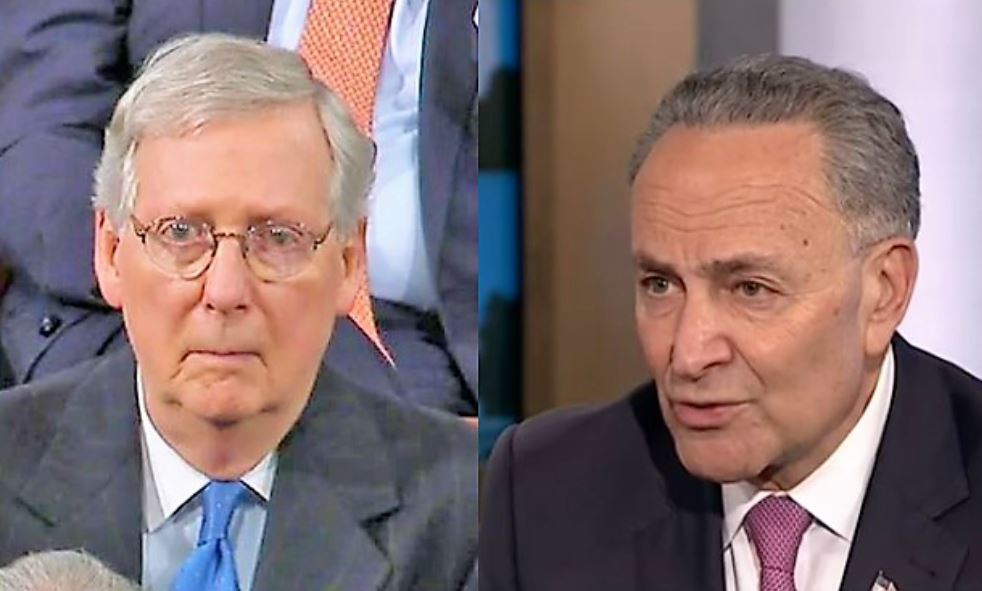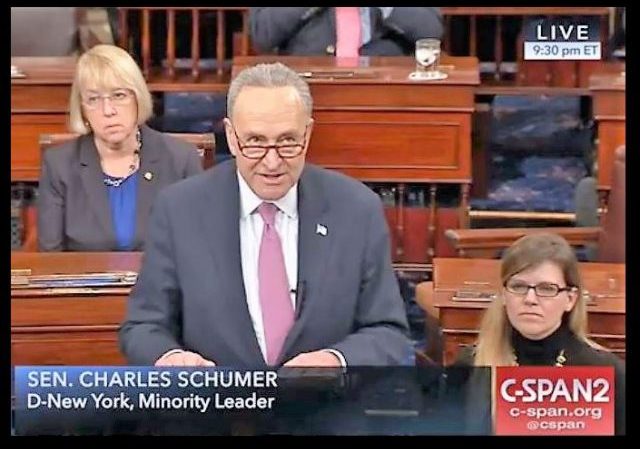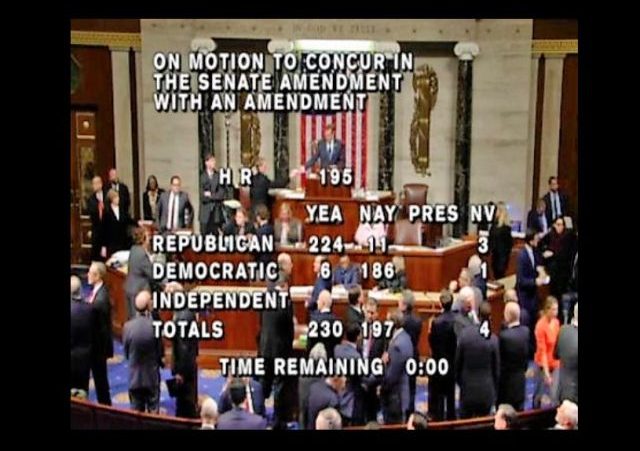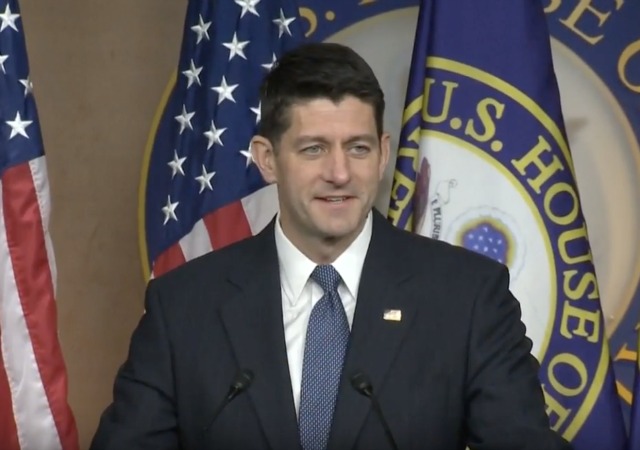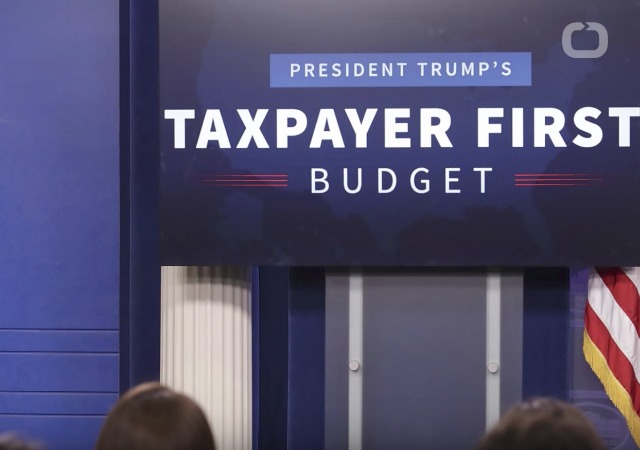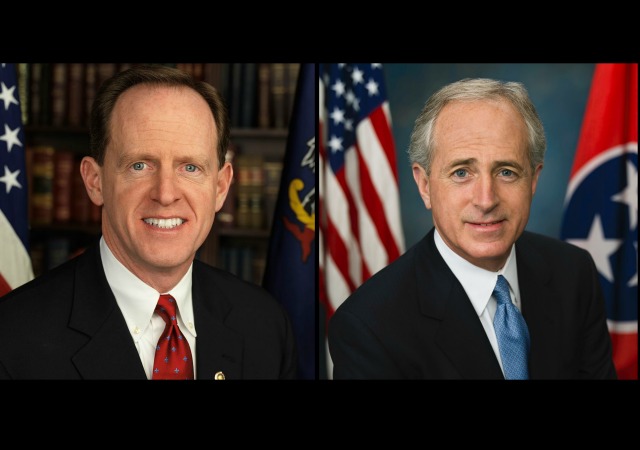Sens. Pat Toomey (R-PA) and Bob Corker (R-TN), two members with opposing views on fiscal policy, have
announced "a path forward on tax reform" that "would allow for a tax reduction, as scored on a statistic basis, over a 10-year period." They hope to Senate Budget Committee will vote on said plan next week.
The senators did not release any details about the plan, but new outlets have stated it will allow tax reductions up to $1.5 trillion.
The Wall Street Journal reported that the "agreement would allow Republicans to lower tax rates while making fewer tough decisions on what tax breaks to eliminate to help pay for the cuts."

